- Joined
- May 11, 2012
- Messages
- 9,801
This is taken from something called factcheck.org called -The Real Deal on the Global Financial Crisis in the US;
So who is to blame? There’s plenty of blame to go around, and it doesn’t fasten only on one party or even mainly on what Washington did or didn’t do. As The Economist magazine noted recently, the problem is one of "layered irresponsibility … with hard-working homeowners and billionaire villains each playing a role." Here’s a partial list of those alleged to be at fault:
The Federal Reserve, which slashed interest rates after the dot-com bubble burst, making credit cheap.
Home buyers, who took advantage of easy credit to bid up the prices of homes excessively.
Congress, which continues to support a mortgage tax deduction that gives consumers a tax incentive to buy more expensive houses.
Real estate agents, most of whom work for the sellers rather than the buyers and who earned higher commissions from selling more expensive homes.
The Clinton administration, which pushed for less stringent credit and downpayment requirements for working- and middle-class families.
Mortgage brokers, who offered less-credit-worthy home buyers subprime, adjustable rate loans with low initial payments, but exploding interest rates.
Former Federal Reserve chairman Alan Greenspan, who in 2004, near the peak of the housing bubble, encouraged Americans to take out adjustable rate mortgages.
Wall Street firms, who paid too little attention to the quality of the risky loans that they bundled into Mortgage Backed Securities (MBS), and issued bonds using those securities as collateral.
The Bush administration, which failed to provide needed government oversight of the increasingly dicey mortgage-backed securities market.
An obscure accounting rule called mark-to-market, which can have the paradoxical result of making assets be worth less on paper than they are in reality during times of panic.
Collective delusion, or a belief on the part of all parties that home prices would keep rising forever, no matter how high or how fast they had already gone up.
The U.S. economy is enormously complicated. Screwing it up takes a great deal of cooperation. Claiming that a single piece of legislation was responsible for (or could have averted) the crisis is just political grandstanding. We have no advice to offer on how best to solve the financial crisis. But these sorts of partisan caricatures can only make the task more difficult.
–by Joe Miller and Brooks Jackson
I've just highlighted the parts that I find most relevant. Both sides in part, are responsible for the economic conditions that cause the GFC, and before another historian amongst you jumps in and says oh but x or y caused it back in the 70s, I've read those theories too, the point is when x or y (the left or the right) did something in any fixed point in your history that helped to in part cause the GFC, the next political party (both sides) didn't rock the boat, didn't step outside their comfort zones to reign in credit, didn't reign in how much your financial institutions were willing to loan both overseas and domestically, didn't adequately control regulators and bankers. And subsequently didn't do enough (couldn't or wouldn't) to try and cushion what subsequently occurred.
Therefore, in part, both sides are guilty of economic mismanagement and both failed at various points in time to adequately put in place enough safeguards, enough regulations, and enough cushions, before, during and after the GFC. If we move on from blaming the other side for the GFC, because lets face it, that won't undo what occurred, it is going to be more productive for us to discuss how Trump is going to "fix" your economy.
He promised during his campaign to create more jobs (and so many Americans drank that cool aid, bought in to what he was offering), and to adopt what I would describe as a set of policies heavily based upon the ideals of protectionism. So what we should be discussing is will this work in your current political climate - why or why not - why one side sees him as your economic saviour and the other sees him as potentially creating even more long term damage.
So who is to blame? There’s plenty of blame to go around, and it doesn’t fasten only on one party or even mainly on what Washington did or didn’t do. As The Economist magazine noted recently, the problem is one of "layered irresponsibility … with hard-working homeowners and billionaire villains each playing a role." Here’s a partial list of those alleged to be at fault:
The Federal Reserve, which slashed interest rates after the dot-com bubble burst, making credit cheap.
Home buyers, who took advantage of easy credit to bid up the prices of homes excessively.
Congress, which continues to support a mortgage tax deduction that gives consumers a tax incentive to buy more expensive houses.
Real estate agents, most of whom work for the sellers rather than the buyers and who earned higher commissions from selling more expensive homes.
The Clinton administration, which pushed for less stringent credit and downpayment requirements for working- and middle-class families.
Mortgage brokers, who offered less-credit-worthy home buyers subprime, adjustable rate loans with low initial payments, but exploding interest rates.
Former Federal Reserve chairman Alan Greenspan, who in 2004, near the peak of the housing bubble, encouraged Americans to take out adjustable rate mortgages.
Wall Street firms, who paid too little attention to the quality of the risky loans that they bundled into Mortgage Backed Securities (MBS), and issued bonds using those securities as collateral.
The Bush administration, which failed to provide needed government oversight of the increasingly dicey mortgage-backed securities market.
An obscure accounting rule called mark-to-market, which can have the paradoxical result of making assets be worth less on paper than they are in reality during times of panic.
Collective delusion, or a belief on the part of all parties that home prices would keep rising forever, no matter how high or how fast they had already gone up.
The U.S. economy is enormously complicated. Screwing it up takes a great deal of cooperation. Claiming that a single piece of legislation was responsible for (or could have averted) the crisis is just political grandstanding. We have no advice to offer on how best to solve the financial crisis. But these sorts of partisan caricatures can only make the task more difficult.
–by Joe Miller and Brooks Jackson
I've just highlighted the parts that I find most relevant. Both sides in part, are responsible for the economic conditions that cause the GFC, and before another historian amongst you jumps in and says oh but x or y caused it back in the 70s, I've read those theories too, the point is when x or y (the left or the right) did something in any fixed point in your history that helped to in part cause the GFC, the next political party (both sides) didn't rock the boat, didn't step outside their comfort zones to reign in credit, didn't reign in how much your financial institutions were willing to loan both overseas and domestically, didn't adequately control regulators and bankers. And subsequently didn't do enough (couldn't or wouldn't) to try and cushion what subsequently occurred.
Therefore, in part, both sides are guilty of economic mismanagement and both failed at various points in time to adequately put in place enough safeguards, enough regulations, and enough cushions, before, during and after the GFC. If we move on from blaming the other side for the GFC, because lets face it, that won't undo what occurred, it is going to be more productive for us to discuss how Trump is going to "fix" your economy.
He promised during his campaign to create more jobs (and so many Americans drank that cool aid, bought in to what he was offering), and to adopt what I would describe as a set of policies heavily based upon the ideals of protectionism. So what we should be discussing is will this work in your current political climate - why or why not - why one side sees him as your economic saviour and the other sees him as potentially creating even more long term damage.

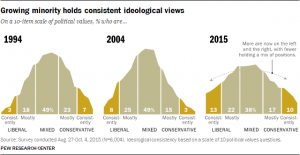

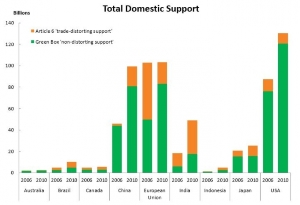
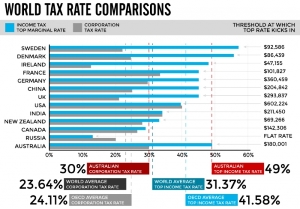
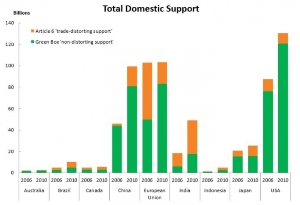
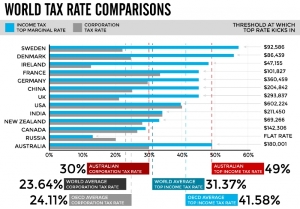


300x240.png)